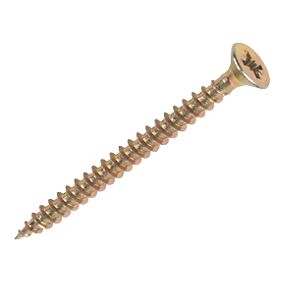Stainless steel from china...I would have bought them from china
RUST ALERT!!!
Stainless steel from china...I would have bought them from china
How long for the rust to appear? My direct from china SS roller door catch still looks brand new after a couple months of installation. It is exposed to the exterior because of a big gap in the front door I have yet to fix.Stainless steel from china...
RUST ALERT!!!
Here, first words are "Top quality". I am guessing you find what I say funny because you don't buy top quality screws much.But he said the screws say "top quality" on the box.


(4-3.8501) / 4 = 3.75%.With a 99.9% confidence level, the srew shaft diameter will be between 3.8501mm and 3.9259mm
A tolerance of around ±1%
Don't know, but having more time to waste on trivial things I made a little experiment a few years ago.How long for the rust to appear? My direct from china SS roller door catch still looks brand new after a couple months of installation. It is exposed to the exterior because of a big gap in the front door I have yet to fix.
Man, I bet you are the life and soul of the kitchen at parties!Just for the giggles
A 100 pack of Turbodrive 4 x 40mm screws.
Random sample of 20 screws.
Measured with an uncalibrated digital caliper.
I have in front of me four screw boxes from Reisser, Spax, ForgeFast and Tite-Fix, yet none of these say "top quality". Have I been sold a pup (or rather four pups?). The Reisser and Spax both state "high peformance", the ForgeFast states "elite performance" and "low torque", whilst the Exterior-Tite states "allows easier insertion and less battery wear". TBH those are all truthful descriptions, but not one claims to be "top quality", which is surely a meaningless description, but beloved of certain Far East manufacturers? BTW the Spax and Reisser screws stand up a lot better to be driven and removed multiple times than any other screws I've ever used and I'm yet to have one snap off on meI am pretty sure all the screws I have are stated as "top quality" on the box or in the product listing.
Are you gonna use some sealant?How long for the rust to appear? My direct from china SS roller door catch still looks brand new after a couple months of installation. It is exposed to the exterior because of a big gap in the front door I have yet to fix.
There's time and place for everything. For door gaps, stick on seals are fine. I have got a good supply of those from china. These are more sticky than the local ones I had. China uses american tech.Are you gonna use some sealant?
Superficial rust is good performance. The rust on the thread was probably contamination from the shed metal.Random stainless steel self tapping screws from ebay (rusted all over superficially and some corroded at the thread
Since I am not into mindless torqueing, no ordinary screws would snap. I had house builder screws snapping from their over torqueing.I'm yet to have one snap off on me
Mean = 3.888mm
Standard deviation = 0.0365
With a 99.9% confidence level, the srew shaft diameter will be between 3.8501mm and 3.9259mm
A tolerance of around ±1%
Not quite, although yes, I should have been more specific.(4-3.8501) / 4 = 3.75%.
What utter nonesense! You select the screws which are appropriate to the task. If your builders snapped screws it is just as likely to be that you chose some cheapskate bunch who didn't know the difference between a 4in screw and a ring nail, or maybe they were just using your cheap and nasty "ordinary" Chinese screws? Any competent tradesman knows the difference between screw qualities and like it or not, at the speeds tradesmen need to work, tools like impact drivers and appropriate quality screws are a must for some tasksSince I am not into mindless torqueing, no ordinary screws would snap. I had house builder screws snapping from their over torqueing.
If you need to find a tradesperson to get your job done, please try our local search below, or if you are doing it yourself you can find suppliers local to you.
Select the supplier or trade you require, enter your location to begin your search.
Are you a trade or supplier? You can create your listing free at DIYnot Local
